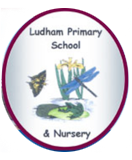French, Spanish, Italian
In Key Stage Two, pupils begin learning other languages. Learning another language fosters pupils’ curiosity, and deepens their understanding of the wider world. Pupils are taught to express their ideas and thoughts in French and to understand and respond to others in both speech and writing. Opportunities are provided for pupils to communicate for practical purposes, learn songs and read stories in French. Pupils also learn about France, its culture and traditions.
Emphasis is placed on the pupils learning to speak with increasing confidence, fluency and spontaneity, continually improving the accuracy of their pronunciation and intonation.
An appropriate balance between spoken and written language helps to lay the foundations for further foreign language study at Key Stage 3.
INTENT- Why do we teach languages?
The intention of the Languages curriculum at Ludham Primary School and Nursery is that children are taught to develop an interest in learning other languages in a way that is enjoyable and stimulating. At Ludham we are LINGUISTS! We intend to use the Rigolo scheme of work and resources to offer a relevant, broad, vibrant and ambitious foreign languages curriculum that will inspire and excite our pupils using a wide variety of topics and themes. We aim to encourage children’s confidence and creative skills through the teaching of languages. Whatever the language taught, we strive to stimulate and encourage children’s curiosity about all languages. As a rural school, it is vital that we help children develop their awareness of cultural differences. We aim to embed the skills of listening, speaking, reading and writing skills necessary to enable children to use and apply their language learning in a variety of contexts and lay the foundations for future language learning.
The intent is that all pupils will develop a genuine interest and positive curiosity about foreign languages, finding them enjoyable and stimulating. Learning languages will also offer pupils the opportunity to develop a deeper understanding of other cultures and the world around them with a better awareness of self, others and cultural differences. The intention is that they will be working towards becoming life-long language learners.
IMPLEMENTATION – What do we teach- what does this look like?
- Our languages curriculum is designed to progressively develop children’s skills in languages, through weekly taught lessons in KS2.
- In KS1, children take part in regular fun activities, games and songs to help them to develop awareness of basic French words and phrases.
- Specialist teachers deliver language lessons supported by planning by Language Angels.
- Children progressively acquire, use and apply a growing bank of vocabulary organised around topics.
- Children are encouraged and supported to develop their speaking and listening skills through conversational work, singing activities and games.
- As confidence and skill grows, children record their work through a range of tailored activities to ensure that all children can access the languages curriculum that is outlined in the National Curriculum.
- Units are progressive within themselves as subsequent lessons within a unit build on the language and knowledge taught in previous lessons. As pupils progress through the lessons in a unit they will build their knowledge and develop the complexity of the language they use.
- In addition to implementing Language Angels scheme of work and resources, Ludham will also promote: Language celebration assemblies, cookery sessions of traditional foods from different countries to facilitate a whole school approach to foreign language learning along with improved cultural awareness.
Languages – IMPACT
Through the use of planning supported by the Language scheme we aim to ensure that children are accessing work at age-related expectations. They will be able to recognise and apply key vocabulary within conversations and will be challenged in a range of speaking and listening, reading and writing activities.
Early Learning units will start at basic noun and article level and will teach pupils how to formulate short phrases. By the time pupils reach Progressive units they will be exposed to much longer text and will be encouraged to formulate their own, more personalised responses based on a much wider bank of vocabulary, linguistic structures and grammatical knowledge. Pupils will continuously build on their previous knowledge as they progress in their foreign language journey through the primary phase. Previous language will be recycled, revised, recalled and consolidated whenever possible and appropriate.
Years 1 to 6 - End Points
The key assessment criteria for being a linguist and international speaker have been devised in such a way that they can be applied to allow teachers to assess how well children are developing as linguists.
Teachers at Ludham Primary School and Nursery may wish to supplement these key assessment criteria with other criteria if they feel that this adds value.
In devising the key assessment criteria, consideration has been given to what is age appropriate in line with the key stage programmes of study.
These have been tested and evaluated by class teachers. In presenting these criteria, there is no suggestion that this is the only ‘correct’ sequence; but rather a suggestion to help teachers plan and assess.
Knowledge organisers




